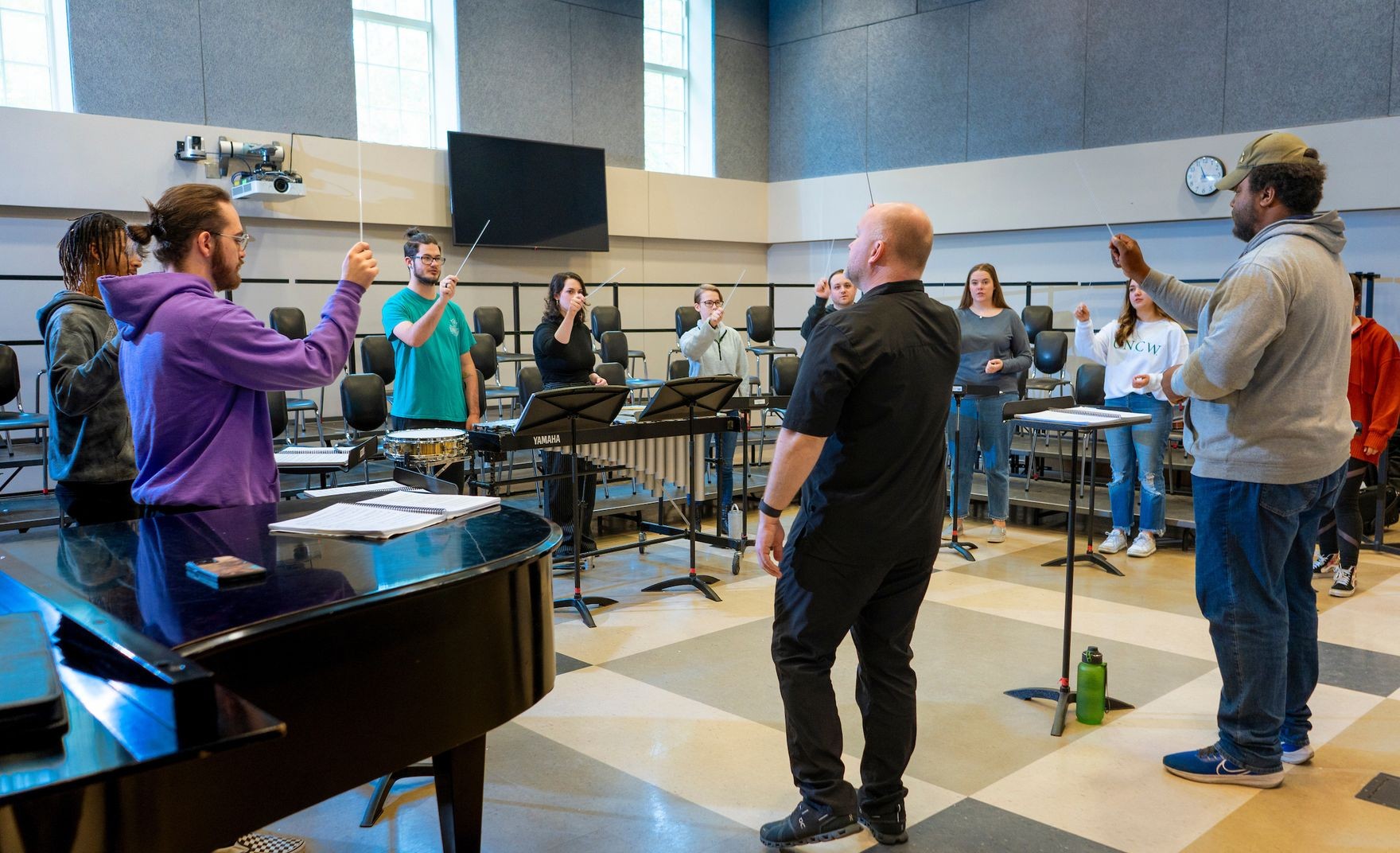BM in Music Education - Student Learning Outcomes
| Student Learning Outcome | Corresponding UNCW Learning Goals | Assessment Tool |
|---|---|---|
| The Bachelor of Music in Music Education graduate demonstrates: | ||
| Competency in fundamental musical knowledge and skills through analytical listening, sight-singing and functional piano playing. | Foundational Knowledge | MUSL 300 final exam Piano proficiency exam |
| Competency in the application of knowledge of music theory through analysis, arranging and orchestrating. | Foundational Knowledge Critical Thinking |
MUS 300 music theory project |
| The ability to effectively communicate in writing on topics in the field of music history through the purposeful use of evidence, insightful reasoning, and supporting details. | Inquiry Information Literacy Critical Thinking Diversity Thoughtful Expression |
MUS 352 research paper |
| Skills in preparation for and performance of musical works that exhibit effective artistic expression. | Inquiry Thoughtful Expression |
Upper Level Qualifying Jury in Applied Music Lessons |
| The ability to assess the need for, locate, evaluate and effectively use information to accomplish the goal of preparing written music for a performer. | Inquiry Information Literacy |
MUS 110 final project |
| The ability to integrate skills and knowledge acquired over the course of an undergraduate education for the purpose of effectively teaching music to K-12 students in the public schools in compliance with the competencies established by the NC Department of Public Instruction. | Inquiry Information Literacy Critical Thinking Diversity Thoughtful Expression |
EDN 409 Intern Performance Scale |
BM in Music Education - Program Outcomes
| Program Outcome | Corresponding UNCW Strategic Goal | Assessment |
|---|---|---|
| Help students work efficiently toward graduation with the skills and desire to continue making a valuable contribution to society through quality music making and teaching. | Create the most powerful learning experience possible. | Track time to degree and graduation rates |
| Integrate varied educational opportunities to create distinctive musical experiences oriented to the student's specific needs and interests. | Create the most powerful learning experience possible. | Senior survey Current student survey |
| Prepare students for a wide range of career options and/or graduate study in music or other academic areas. | Create the most powerful learning experience possible. | Alumni survey |
| Recruit music majors who enhance our programs through dedication to the development of musicianship and to excellence in academics. | Create the most powerful learning experience possible. | Enrollment tracking report Faculty Recruitment Activities report Track acceptance rates for auditionees Average performance scale score for auditionees |
| Recruit and foster affiliations with non-music majors who have the skills to participate effectively in our student performing ensembles. | Create the most powerful learning experience possible. | Track course enrollment numbers of non-majors. |
| Offer a diversity of musical performances to the community, working collaboratively when opportunities exist. | Strengthen the university's regional engagement and outreach activities. Embrace and enhance diversity. |
Track number and genre of concerts and events annually Attendance numbers |
| Maintain a curriculum that serves to develop musicians through experiences in a diverse performance repertoire, and the study of the music of different centuries and peoples. | Create the most powerful learning experience possible. Embrace and enhance diversity. Create an educational environment that prepares our students to become global citizens. |
Senior survey Current student survey Departmental curriculum review |
| Work in collaboration with K-12 music teachers to impart to students the requisite skills and knowledge and the foundational experience necessary to become highly competent and effective music teachers in the public schools. | Create the most powerful learning experience possible. Strengthen the university's regional engagement. Embrace and enhance diversity. |
Job placement statistics. Alumni survey. |


